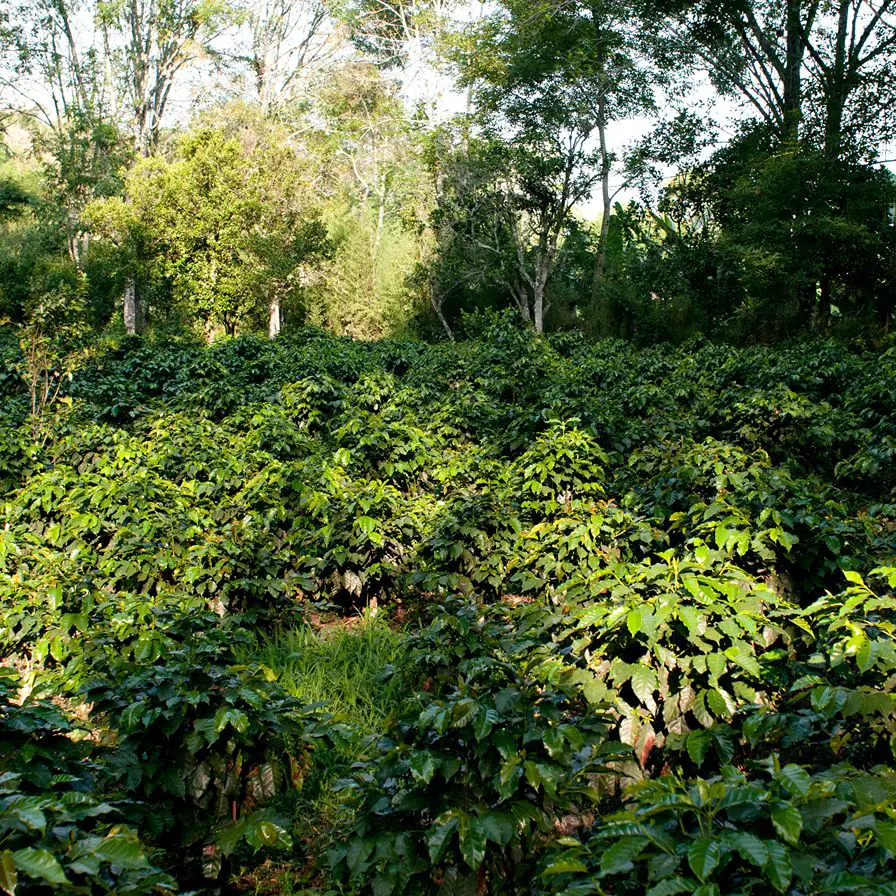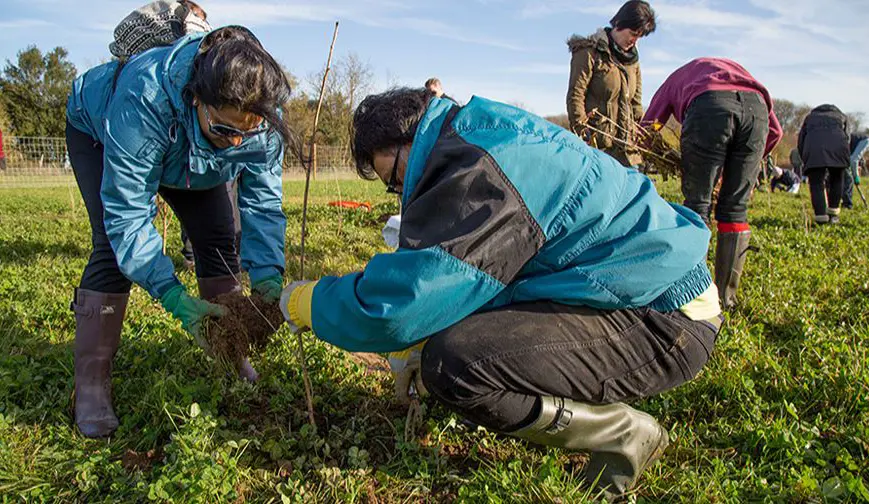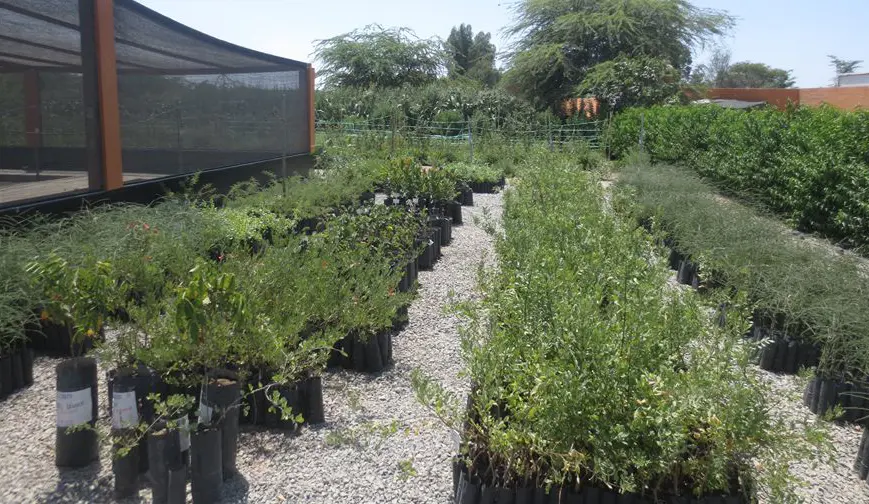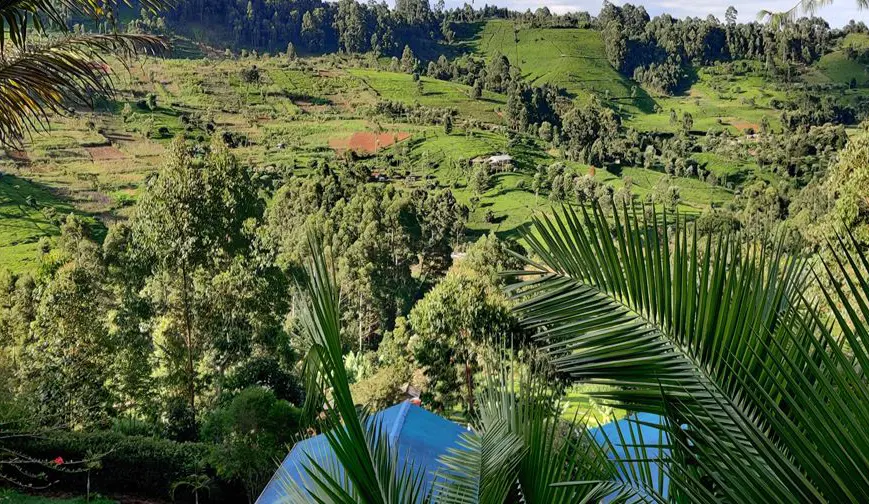- Own brand products are deforestation and conversion free by December 2025
- Contribute towards a nature positive future
Nature is essential for the health of our planet, stability of our economy and resilience of our business. From forests and soil to freshwater and oceans, the natural world provides the food our customers eat and the products they buy. At Sainsbury’s, we depend on nature and want to ensure that through our direct operations, our supply chains and wider system, we are working to protect and regenerate it.
Against the continued threats to nature from climate change, land and sea use change, pollution and the exploitation of natural resources, we have more work to do than ever before to make sure that the planet and the people who support the production of our food are protected from these risks, and that we work in step with the natural world to deliver good nutritious food to everyone for generations to come.
Our ambition
Our progress and highlights
of the UK Soy Manifesto
of the palm oil used in our own brand products is sustainably sourced
native trees planted across the UK through our partnership with The Woodland Trust
Our areas of focus
Sustainable sourcing
Deforestation and conversion free
Collaborating with our suppliers and industry
Protecting landscapes

Nectar and Sainsburys strengthen partnerships with the Woodland Trust
Since 2004, Sainsbury’s has supported the Woodland Trust, raising over £14 million, planting over 5.1 million native trees and protecting more than 2,000 acres of woodland, which has the potential to mitigate over 1.3 million tonnes of carbon dioxide. To celebrate our 20-year collaboration, we announced a new agroforestry initiative alongside Woodland Trust. Currently, only 3.3 per cent of UK farmland practices agroforestry, which is below the European average. The Trust will help farmers create planting plans to integrate trees into their land, promoting resilient practices and protecting the environment.
Nectar360, which manages Sainsbury’s Nectar loyalty scheme, also began working with the trust in 2021 and has extended its partnership to 2027, allowing customers to support conservation while earning rewards.
Customers can earn 20 points per £1 spent on Woodland Trust memberships and triple points on certain Sainsbury’s items for Woodland Trust members.

Restoring habitat and community agrobiodiversity
Since 2014 we have supported a habitat restoration and community agrobiodiversity project in Ica Valley in Peru, in collaboration with our supplier Barfoots, Kew Royal Botanic Gardens, and a local NGO, Huarango Nature. The establishment of the first regional Native Plant Conservation Centre has protected thousands of useful native threatened plants whilst teaching generations of children on their use and value for well-being, resilience, agriculture, and medicine.
A forest planted by Huarango Nature at the start of our collaboration, initially with 18 dry forest plant species, now boasts over 80 native species and provides habitat for a diverse array of animal and bird life. The growing forest also increases shade, water percolation into the ground which recharges groundwater aquifers, and soil fertility. Growers involved are experiencing benefits such as flood and drought resilience, carbon capture, enhanced pollination, natural pest management, increased biodiversity, and reduced soil erosion, wind damage, and pollution as the forest areas act as a buffer.
This project demonstrates how food supply chains and conservation science can contribute to restoring native biodiversity and supporting local communities, while improving climate resilience.

Investing in DCF soy production in Brazil
Sainsbury’s is a leading investor in the Responsible Commodities Facility (RCF), an initiative to promote the production and trading of responsible soy in the Cerrado region of Brazil, the world’s most biodiverse tropical savannah. Half the Cerrado has already been converted and rates continue to increase. RCF offers low interest loans to farmers on the condition they do not deforest or convert any forests or natural vegetation on their farms and preserve natural ecosystems – an undertaking beyond what is legally required.
We have committed to extending our investment in RCF from 2026/27 to 2030/31, unlocking up to $10 million of additional funding from the UK Government’s Mobilising Finance for Forests (MFF) programme from 2025- 2030 and equivalent funding from the Dutch government.
Our involvement in RCF supports a resilient, DCF soy supply chain from this region that is crucial for our poultry due to its high protein content. It is also more carbon-efficient: RCF farms have an estimated footprint of 0.5 tCO2/ tonne compared with other farms in Northern Brazil which average 2.3 tCO2/ tonne.



